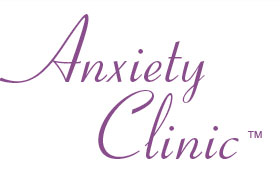Anxiety Symptoms
Anxiety Disorder Symptoms
Anxiety symptoms are fixable! You may be looking for information on anxiety symptoms, trying to diagnose if your anxiety symptoms mean you have an anxiety disorder or perhaps even looking for a solution to help you recover from long term anxiety symptoms. Whatever your motivation (or anxiety symptoms), these pages are crammed full of original specific information, tips and options to help you recover. If you’re ready for recovery from your anxiety symptoms or anxiety disorder - go straight to our anxiety treatment page now.
Common Anxiety Symptoms
The most common anxiety symptoms are listed below, however remember that anxiety disorders aren’t based simply upon the number of symptoms you have. Anxiety symptoms should only be used as a rough guide when diagnosing an anxiety disorder. Everyone is individual so anxiety symptoms (even for the same anxiety disorder) can vary from person to person.
Here’s the list of common physical anxiety symptoms:
Unexplained aching in the muscles
General muscle tension
Unexplained back or shoulder pain
Tightness in the chest
General tiredness and physical lethargy
A feeling of physical detachment (like you’re not in your own body)
Nausea
Stiff neck
Stomach ache / Stomach bloating
Poor quality sleep
Tiredness in the day / Difficulty sleeping at night
Less Common Anxiety Symptoms

As mentioned earlier, different people suffer from different anxiety symptoms. It’s not accurate to simply add up your anxiety symptoms and use a number to decide if you have an anxiety disorder or not. Anxiety symptoms (and the associated anxiety disorder) need to be carefully considered as a whole before an accurate diagnosis can be made. Here’s a list of less common physical anxiety symptoms:
Pounding heart or palpitations
Bouts of unusual sweating
Loss of sex drive
Dizziness or feeling light headed
Numbness or pins & needles
Dry mouth
Night Sweats
Bowel dysfunction - IBS / Constipation / Diarrhoea
Psychological Anxiety Symptoms
Many people tend to focus upon their physical anxiety symptoms. However, it is actually more important to focus upon and address the psychological (mental) anxiety symptoms. The reason for this is simple - anxiety is an emotion and hence is a psychological process. When we get down to how the mind and body work it becomes evident that emotional processes in the mind actually create physical symptoms within the body. Thus ongoing anxiety within the mind creates physical anxiety symptoms in the body. We discuss how thought processes create emotions and their effects on the body in specific detail here:
Here’s the list of psychological anxiety symptoms:
Constant bombardment of anxious thoughts
Unsolicited and unreasonable thoughts entering the mind
Habitual reliving of past events (replaying conversations and scenarios)
Habitual speculation of the future and what may go wrong
Worries or anxiety disproportionate to reality
Disproportionate fear of failure, ridicule, loss or even death
Constant self talk within the mind
Unreasonable focus upon protection and safety of self and/or others
Thoughts of personal unworthiness or incompetence
Lack of confidence and self-esteem
The above anxiety symptoms are prevalent in anxiety disorder sufferers. As mentioned earlier you only need to experience some of the anxiety symptoms to be classed as having an anxiety disorder. Suffering from a high number of anxiety symptoms is of course a concern, however how the anxiety symptoms fit together (particularly with respect to the psychological examples) often affects the intensity of the anxiety disorder.
Why traditional treatment for anxiety doesn’t work

We hear from many people that traditional methods for dealing with anxiety don’t seem to be effective - particularly over the long term. There are essentially two methods of traditional treatment:
The first type of traditional treatment for anxiety disorders is counselling (or therapy). The reason few people get referred to counsellors or therapists is that the queues are so long. However, the reason the queues are long is because the counselling (or therapy) is largely ineffective. Thus you have the same people being referred over and over, going around and around the system and still not recovering from their anxiety problem. These people being ‘stuck’ in the system clog it up for others who are hoping for some kind of solution. Unfortunately, even after queueing for weeks or (more often) months - counselling or therapy rarely delivers recovery.
Second we have medication (anti-depressants) which are the mainstay of many GP’s. We’d like to point out that we’re not bashing GP’s here - they do the best they can with what they have... and what they normally have is 'seven minutes’. The time restrictions placed upon most GP’s means that their options are severely limited. Their choices are to refer you to a counsellor or therapist (see above) or write you a prescription for drugs.
The reason drugs don’t work over the long term is that they’re not designed to fix the problem. Anti-depressant drugs are designed only to suppress symptoms... and you have to keep taking them (for ever) if you want those effects. You could argue that if you didn’t feel bad you wouldn’t care how the drugs worked - and this is the trap so many people fall into.
By taking medication you effectively sweep the problem under the carpet. However, feeling anxious is the minds way of telling you there’s a problem - and by ignoring (or suppressing) the symptoms the mind begins to step up the ante and tries even harder to get you to listen. So long as the problem remains unaddressed (whether the symptoms are suppressed or not) the cause behind the symptoms continues to run. No matter what drugs you’re taking - anxiety symptoms will return in due course. Inevitably things are going to get unbearable and being hooked on anti-depressants and their side effects probably isn’t the place you’d like to be in the future when anxiety symptoms return with a vengeance.
Anxiety symptoms - what are your options?

Basically you’ve come to a cross-roads in your life and in front of you are four possible paths:
1. Do nothing. Cope with anxiety the best you can and hope it’ll miraculously go away.
2. Keep searching for information. Maybe one day you’ll find a magic bullet that’ll get rid of your anxiety.
3. Go down the traditional path. Take your chances with counselling and/or a lifetime of being hooked on anti-depressants.
4. Use what is proven to work. In order to overcome anxiety symptoms, you need to address the cause. We’ve already discussed that your anxiety symptoms are created within your own psychology (thought processes). We’ve specialised in this field for 15 years and can simply, quickly and safely teach you skills and mind sets that will rid you of your anxiety symptoms. There’s no miracle CD’s or downloads... just specialised professionals who get results. We only work one to one and everything is specifically geared to accommodate you and your individual situation. We’re not asking for any commitment, we’re just suggesting you take a look at what we do and decide for yourself.
Our Anxiety Clinic is located in Staffordshire, however if you don't live in or near to Staffordshire we can still help you to recover. We offer Online Consultations with the same Specialist Consultants you'd work with if you came to our Clinic in person. Choose a link which best suits your needs:
I can get to the Anxiety Clinic for Face to Face Consultations (Staffordshire)
I don't live near the Clinic so Online Consultations (Nationwide) would be best for me







